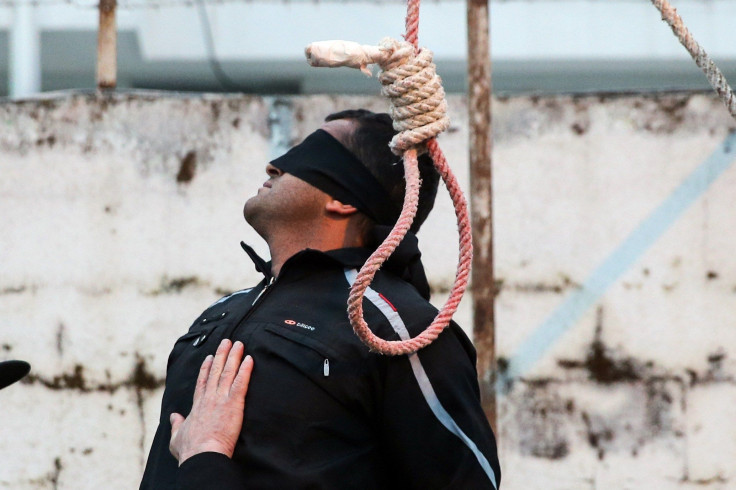Iranian Authorities Must Halt Execution Of Former Schoolteacher Set For Tuesday: Amnesty International

Human rights organization Amnesty International has called on Iranian authorities to halt the execution of former schoolteacher Mahmoud Barati. Ten years ago, Barati was convicted of drug-related offenses following a trial the London human rights group has characterized as deeply flawed and unfair.
Sources at the prison at which Barati is being held said he was recently transferred to solitary confinement and was scheduled to be executed at dawn Tuesday.
“The Iranian authorities must end their unprecedented killing spree -- more than 700 people have been executed so far this year, most of them convicted on drug-related charges,” said Audrey Gaughran, director of global issues at Amnesty International.
Amnesty International said a contact at the prison reported Barati was subjected to torture and offered a forced confession, which he later retracted. The principal witness against Barati was believed also to have retracted his testimony.
#Iran: stop the execution of schoolteacher #MahmoudBarati! #stoptorture http://t.co/xUi1zbT38c #deathpenalty pic.twitter.com/rG998VN27f
— Amnesty Eindhoven (@Amnestyehv) September 7, 2015Iran’s drug laws, which mandate the death penalty for a range of drug-related offenses, are a breach of international law, the rights group said. “Mahmoud Barati’s execution must immediately be halted. International law does not allow for the use of death penalty for drug-related offenses. Iranian authorities must immediately quash his death sentence,” Gaughran said.
The country is believed to have one of the highest rates of executions in the world.
The rights organization has repeatedly criticized Iran’s judicial system, which it says lack independence and impartiality. Detainees are routinely denied access to lawyers and there are inadequate procedures for appeal.
At least 700 people have been put to death this year. Thousands more are believed to be on death row, and about 80 percent of those awaiting execution have been charged with drug violations. Many of those convicted of drug-related offenses come from the country’s most disadvantaged communities.
Prisoners are often informed of their impending execution just a few hours beforehand and families often learn of the execution afterward, Amnesty International reported.
© Copyright IBTimes 2025. All rights reserved.






















